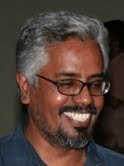Another Great Actress Leaves the Stage

ADOOR BHAVANI
C
Acting in cinema is not like any other vocation. Appearance in films and the ‘recognition’ that invariably follows transports the actor/actress into a magical world where nothing else matters. It holds a fatal attraction despite umpteen disappointments, ups and downs all along - in the form of one’s role being editing out, films bombing at the box office or never getting released, and almost invariably, bounced cheques that never get realized or even regretted. But the lure of the tinsel world is such that once there, one is doomed for life. In the case of artists who survive by doing ‘side roles’ this can be an especially frustrating experience. For even while one floats over the tinsel froth and tides, there persists a certain emptiness within, a lurking feeling that one hasn’t been able to play a fulfilling and challenging role that is equal to one’s talent and experience. Many an artist fades out and dies with this feeling, neither making it big personally or financially.
The demise of Adoor Bhavani augurs such sad thoughts in one’s mind. She had been a very impressive presence in Malayalam cinema for at least five decades (1953-2003). Yet she never got a real break like some of her colleagues, like for instance, Premji in Piravi, Adoor Bhasi in Cheriyachante Kroorakrithyangal, Bahadoor, though very late in his life, in Thilakkam, Oduvil in Oru Cherupunchiri etc. She had to remain at the margins throughout her carrer like many other stalwarts of her generation: S P Pillai, Paravur Bharathan, Alummoodan, Kuthiravattom Pappu, Meena, Philomena etc. Yet they all firmly etched themselves into our memory through small roles yet striking performances.
Adoor Bhavani virtually stumbled into films with Sariyo Thetto in 1953. From the beginning, she had a style of her own, for she was neither a conventional ‘beauty’ nor was she known for her dancing skills. But her persona had a rustic charm and vitality that immediately vibed with the audience, an unassuming style that was intimate and neighbourly. As she could effortlessly transform herself into the character, her very presence added a certain rootedness to the ambience of the narrative. In that sense, she was a ‘milieu actress’; all her impressive performances were of characters belonging to a definite milieu, for eg. as a fisherfolk woman Chakki in Chemmeen, the self-effacingly loyal Nair sister to her brother in Koottukudumbam, the friendly Muslim neighbour in Kadalpalam, Chellamma’s guaradian-neighbour and fellow street vendor ‘Valliakkan’ in Kallichellamma or the proud but caring mother-in-law in Kodiyettam
No wonder her gradual sidelining within Malayalam film narrative coincided with the retreat of such milieu-based narratives, and its withdrawal into male-dominant, upper caste/middle class homes, where aged people and women were mere appendages. If actresses like Kaviyoor Ponnamma and Sukumari graduated to motherly roles and those like Meena and Philomena tried their hands at comedies, Adoor Bhavani persisted with small but serious roles. Though she was often typecast, she was able to handle all such roles with equal charm and ease. Like many of her contemporaries, for whom acting was never just a career, her last days too were spent in loneliness and penury: another instance of our utter disregard for art.
Adoor Bhavani was one of the last representatives of a generation of actors who came to cinema from theatre; their acting style drew its energy from stage experience. With the varied and direct encounters they thus had with spectators all over Kerala, they could make their presence felt in film too without resorting to any kind of antics or exaggeration, even in very small roles and brief appearances. They easily became part of the narrative milieu and merged perfectly with its ambience. Sadly, Adoor Bhavani was one such actress, of whose talents Malayalam cinema could only capture a few glimpses.
Labels: malayalam cinema


0 Comments:
Post a Comment
Subscribe to Post Comments [Atom]
<< Home